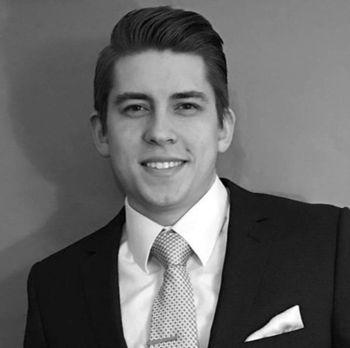YAL wins 'modern battle of Bunker Hill' to secure free speech
Bunker Hill Community College has agreed to eliminate a speech policy that prohibited a Navy veteran from passing out copies of the U.S. Constitution on campus.
Following that incident, Young Americans for Liberty (YAL) and two national free speech advocacy organizations challenged the constitutionality of Bunker Hill’s policies in a letter to the administration, arguing that the school has no right to require permission for students to engage in expressive activity on campus.
[RELATED: SURVEY: Free speech gradually gaining ground on campus]
“[T]hanks to the efforts of YAL students and attorneys from Alliance Defending Freedom (ADF) and the Foundation for Individual Rights in Education (FIRE), Bunker Hill Community College has eliminated its unconstitutional restrictions on free speech that prevented Navy veteran Jeff Lyons from passing out copies of the U.S. Constitution,” YAL said in a press release.
The group also announced that the entire Massachusetts Community College System, including Bunker Hill, “has agreed to review similar problematic policies at 6 of its other campuses.”
In early May, Lyons and several other YAL members were approached by campus police and told that passing out U.S. Constitutions at the college’s Charlestown campus violated school policy.
“The police informed the students that they were violating Bunker Hill policy because they did not have a permit to hand out copies of the Constitution,” YAL explained. “The students were then reported for violating the student code.”
[RELATED: Conservatives students ARRESTED for handing out Constitutions]
Soon after, ADF and FIRE pushed back by informing the college “that its policies violated the students’ First Amendment rights,” eliciting a contrite response from the system’s general counsel.
“The college responded in agreement, saying that it ‘should not have directed members of Young Americans for Liberty to stop distributing copies of the U.S. Constitution in an open, outdoor area on campus,’” YAL noted, stressing that the officials also “agreed to ensure that ‘there is no blanket ban on student rights to distribute materials on campus or to engage in spontaneous speech absent pre-approval.’”
Earlier this month, ADF and FIRE sent another letter to the Massachusetts Community College System to “acknowledge the changes made to the speech permit policy at Bunker Hill,” but also to inform administrators of “unconstitutional policies at other campuses” in the system.
[RELATED: UC reminds freshmen that it doesn't do safe spaces]
According to an ADF press release, MCCS responded to that letter last week by agreeing to review the highlighted policies, earning praise from YAL, ADF, and FIRE.
“A college campus should be a marketplace of ideas where students can peacefully express their views without fear of punishment,” said ADF Legal Counsel Caleb Dalton. “We commend Bunker Hill for adopting policy changes that protect free speech. These changes serve as a model to guide other schools, including other schools within the Massachusetts Community College System.”
FIRE Director of Litigation Marieke Tuthill Beck-Coon, meanwhile, noted that “students at a public college shouldn’t have to ask for a government permission slip to exercise their most basic First Amendment freedoms,” expressing satisfaction that MCCS “is willing to review policies at some of its other schools which, if left unchanged, could result in the same sort of problem happening on those campuses that happened at Bunker Hill.”
“This was the modern battle at Bunker Hill where a Navy veteran was told he needed permission to hand out copies of the very document he risked his life for,” YAL President Cliff Maloney said in a statement. “Free Speech does not require a permit and we applaud Bunker Hill Community College for changing their unconstitutional speech policies.”
UPDATE: In a follow-up email, a university official explained that the Student Council “had requested two changes to the constitution submitted by YAF” in November, and that the CIO application was “temporarily denied” when no response was received.
“The decision by Student Council was not viewpoint based, but rather based upon an error in applying the non-discrimination policy,” the spokesperson said. “The CIO application from YAF was never voted on by the Student Council representative body for final approval or denial. The University has now requested that Student Council take steps to remedy this as soon as possible.”
Follow this author on Facebook: Nikita Vladimirov

